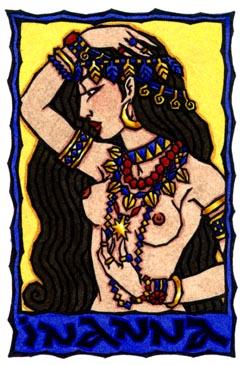(1) We have a way of structuring our moral lives, in the dominant U.S. culture at least, that makes no sense: thinking of things in terms of "deserving" or "not deserving." This musty old moralism is an artifact of Protestantism, perhaps ("work hard and you'll get what you deserve"), or even of the Old Testament ("an eye for an eye"). These moral categories may cause various familiar affective problems--a misplaced sense of guilt and entitlement, for example. But another kind of problem--we might call it an ontological problem--is that these categories of desert fail to describe reality. In a world where the distribution of wealth, luck, and opportunities is so disparate, it doesn't make any sense to say that we get what we deserve.
(2) I'm someone who is inclined to feel guilty for her many blessings, as long as I'm thinking in terms of desert (deserving). Gratitude is tainted for me if I feel like I don't deserve what I have. And how could I deserve what I have, when so much of it comes down to luck? Many opportunities have come to me because I benefit from unfair systems of privilege, for example, because I am white in a racist society, or because I was born into the middle class in the United States in the late 20th century, when we lived on resources ransomed from the future. Why should I have so much when others don't? When I think in terms of desert--and inevitably I think that way--I feel nearly paralyzed with guilt.
(3) Guilt in most, if not all circumstances is a useless feeling. It's a form of moral disempowerment.
(4) How do I escape the labyrinth of guilt? I need a new way of thinking about the things I have. I used to think that there had to be a way of eschewing privilege, as if I could refuse to be white in this racist society, or as if it would be a good thing to turn down the chance for a university education. I still hold to this idea in some ways; I refuse to marry, for example, in part because it seems to me an exercise of unjust privilege. (Whether I'm cutting off my nose to spite society's face remains to be seen. And it's not as if I give up heterosexual privilege by refusing to marry my male partner. Hell, most people assume we're married anyway. )
(5) One of the characters in Widdershins says it this way: "accept the gifts that you're offered." There may be extrinsic reasons to accept those gifts; doing so may put you in a better position to help others, for example. But I believe there are intrinsic reasons, too, to accept gifts graciously and lovingly offered. The character who says to accept gifts also believes in doing good without thought of recompense. We might also accept kindnesses without feelings of obligation, of needing to pay anything back. Perhaps it is a better thing to say, humbly, thank you.
(6) The power to effect good lies in being a good steward of whatever gifts we're given. We are all of us surrounded with blessings. As a Wiccan I feel strongly how the earth offers Herself up freely to us, how She provides us with all of our needs. What shall we do? How shall we act? We shall guard and nurture the gift, rather than squander it.
(7) This is the idea I'm trying on in place of guilt: to be a good steward of my many blessings; to treat my fellow beings as worthy of respect, integrity, and love; to guard and protect, and to make wise use of that which has been given to me. In other words, to live in balance with the blessings. To live in accord.
Subscribe to:
Post Comments (Atom)




4 comments:
I've been thinking about resisting guilt recently, too, though not so coherently. I like this idea of replacing it with stewardship, though I suspect in practice it will be difficult to pull off that replacement.
You know how sometimes just reconceiving the terms in which you're thinking about something can start to shift your experience? I've found that happening for me. One image I've been using to help with this is the Gardener/Empress from the Gaian Tarot. Look at her sitting there in the midst of all that abundance. Does she look guilty? No, she looks like she just licked up a bowl of cream.
I have a lot of symbols like that one in my life. In the Tarot, the Empress is my "soul card," representing the soul's journey through many lifetimes, and I feel a particular attraction to the Gain Tarot image. My rising sign, in my astrological natal chart, is the image of a room filled with jewels. It was actually my astrology teacher who first said to me, in her characteristically blunt way, "look, you'll always have a lot of abundance in your life; you can feel guilty about it, or you can choose to do something else with it. What are you going to do?"
Thank you for such an excellent article. It puts guilt in a way I haven't thought of before. Now, I see everywhere in our culture this idea of deserving or undeserving of everything.
For example, you are told to buy something because, "You deserve it." Or, something bad happens to someone who "didn't deserve it."
It's sad how everything is tied to guilt or innocence. Nothing ever "just is" and nothing ever happens to help someone grow.
Guilt is a useless feeling..... What an idea!
I always thought guilt was there to tell us when we've done something wrong...and in a way, I guess it is. But it's based on our society's really weird ideas of right and wrong. So, yeah, it's pretty much useless.
This entire post is something to really think about. Thanks for sharing!!
Post a Comment